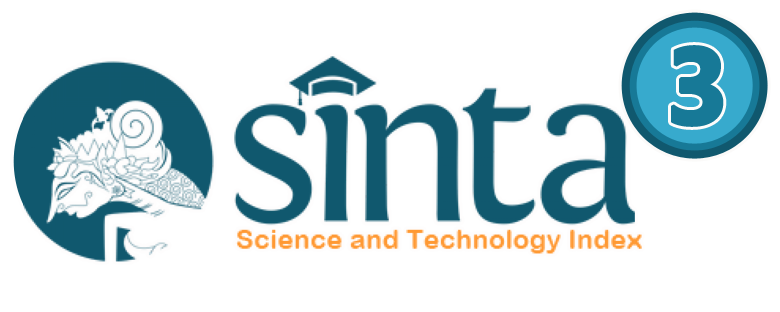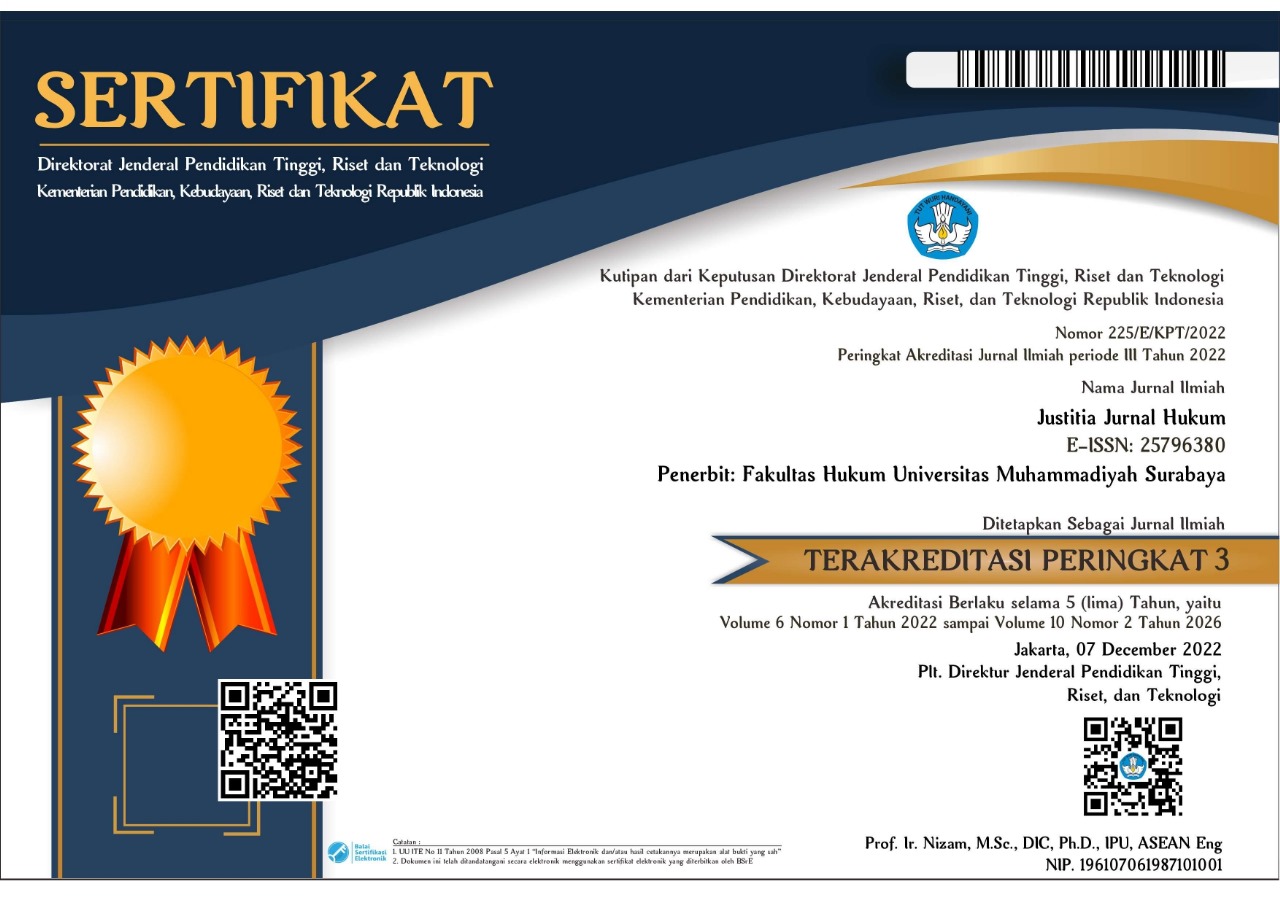Strengthening Public Participation in The Law-Making
DOI:
https://doi.org/10.30651/justitia.v6i2.17241Abstract
The legal character of a democratic law is identical to its main characteristic, namely the participation of all groups in society. If democracy is defined as the participation of members or groups in society, then this is tantamount to accepting the position that democracy is only possible when the existing groups of people have relatively balanced political power. If one group of people is too strong, then the life of democracy will be threatened. At least, democracy depends on the will of the rulers. Community participation or participation is part of the principles of democracy. One of the main prerequisites for realizing this participation is openness or transparency. The principle of openness contains at least two main elements that allow community participation to occur, namely: First, the right to know. This right is a fundamental right in a democracy. That is, all matters relating to the public interest, then the public should know it completely, correctly and accurately. Second, the right to think. After the public has access to information about what is the public's right to know it, then the right of the community is also to be involved in contributing in order to support government policies.
References
Abdillah, Masykuri. Demokrasi di Persimpangan Makna: Respons Intelektual Muslim Indonesia Terhadap Konsep Demokrasi 1966-1993. Yogyakarta: Tiara Wacana, 1999.
Alim, Muhammad. Demokrasi dan Hak Asasi Manusia dalam Konstitusi Madinah dan UUD 1945, UII Press, Yogyakarta, 2004.
Astawa, I Gde Pantja dan Suprin Na’a. 2008. Dinamika Hukum Dan Ilmu Perundang-Undangan Di Indonesia.Bandung: PT ALUMNI.
Asshiddiqie, Jimly. Gagasan Kedaulatan Rakyat dalam Konstitusi dan Pelaksanaannya di Indonesia. Jakarta: Ichtiar Baru Van Hoeve, 1994
Asshiddiqie, Jimly. Format Kelembagaan Negara Dan Pergeseran Kekuasaan Dalam Negara, editor Ni’matul Huda, cetakan pertama, FH UII Press, Yogyakarta, 2004.
Asshiddiqie, Jimly. Hukum Tata Negara dan Pilar-Pilar Demokrasi (Jakarta: Konstitusi Press, 2005.
Bentham, Jeremy. The Theory of Legislation, NM Tripathi Private Limited, Bombay, 1979.
Budiardjo, Miriam. Dasar-Dasar Ilmu Politik. Jakarta: Gramedia Pustaka Utama, 2007
Budiman, Arief. Kebebasan, Negara, and Pembangunan: Kumpulan Tulisan 1965-2005 (Jakarta: Pustaka Alvabet, 2006
Firdaus, Fahmi Ramadhan. Mewujudkan Pembentukan Undang-Undang yang Partisipatif, Edisi Pertama, Banyumas: Amerta Media
Gaffar, Afan “Sistem Politik, Demokrasi, dan Faham Integralistikâ€, Makalah. Jakarta: ICMI, 8-9 Desember 1995
Gary Craig and Marjorie Mayo (editor), Community Empowerment a Reader in Participation and Development, Zed Books Ltd., London &New Jersey, 1995.
Hardiman, Budi .F. Demokrasi Deliberatif Menimbang Negara Hukum dan Ruang Publik dalam Teori Diskursus Jurgen Habermas, Yogyakarta, PT Kanisius, 2009.
Harold J Laski. The State in Theory and Practice. New York: The Viking Press, 1947
International IDEA. Penilaian Demokratisasi di Indonesia, Jakarta: International IDEA Publishing, 2000
Isra, Saldi. 2013. Pergeseran Fungsi Legislasi. Jakarta: Rajawali Pers.
Kelsen, Hans. General Theory of Law and State, Russel & Russel A Division of Athenaeum Publisher, Inc., New York, 1961
Kertas Kebijakan, catatan kritis terhadap Undang-Undang Nomor 11 Tahun 2020 tentang Cipta Kerja (Pengesahan DPR 5 Oktober 2020) Edisi 2/5 November 2020, Yogyakarta: Fakultas Hukum Universitas Gadjah Mada, 2020.
Kelsen, Hans Teori Hukum Murni: Dasar-Dasar Ilmu Hukum Normatif, (Bandung: Nusa Media, 2008),
Downloads
Published
How to Cite
Issue
Section
License











